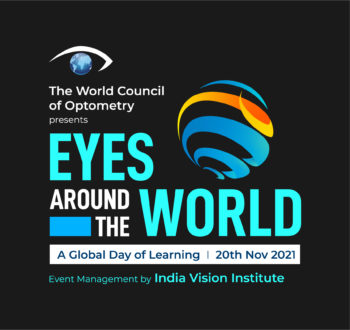Dr. Efrain Castellanos
Dr. Castellanos graduated with honors from Xochicalco University School of Optometry in 2003. He started Centro de Desarrollo Visual, an optometry practice focused on specialty services including Pediatrics, Vision Therapy, Neuro-Optometric Rehabilitation, Low Vision, and Specialty contact lens fitting.
He obtained his Fellowship from the College of Optometrist in Vision Development in 2004 (COVD) and he is also a Fellow of the American Academy of Optometry. He completed a Diplomate in Specialization in Vision and Development in 2006, earned a master’s degree in Biomedical Sciences in 2008, and a Ph.D. in education in 2017 where he graduated with honors.
Dr. Castellanos has served many leadership role positions including President of the College of Optometry in his Alma mater, president of the Baja California Optometric Association, President of the Mexican Council of Behavioral Optometry, Chair of the education committee for the Inland Empire Optometric Association, Chair Interinstitutional and International affairs for the Mexican Association of Faculties School, Colleges and Councils of Optometry (AMFECCO) and currently he is the president of the Latin American Association of Optometry and Optics (ALDOO).
He has been an optometric educator for 18 years in different disciplines with an emphasis in Pediatrics, Binocular Vision, Vision Therapy, Low Vision, and Neuro-Optometric Rehabilitation. Dr. Castellanos is currently full-time faculty at Western University College of Optometry where he serves as Instructor of record for Interprofessional Education and clinical preceptor in the Vision Therapy department.
___
El Dr. Castellanos se graduó con honores de la Facultad de Optometría de la Universidad de Xochicalco. En 2003. creo el Centro de Desarrollo Visual, un consultorio de optometría enfocada en servicios especializados que incluyen pediatría, terapia visual, rehabilitación neuro-optométrica, baja visión y adaptación de lentes de contacto especiales.
Obtuvo su Fellowship del College of Optometrist in Vision Development en 2004 (COVD). y es Fellow de la Academia Americana de Optometria. Es Diplomado en Especialización en Visión y Desarrollo en 2006, obtuvo una maestría en Ciencias Biomédicas en 2008 y un Ph.D. en educación en 2017 donde se graduó con honores.
El Dr. Castellanos ha ocupado muchos puestos de liderazgo, incluido el de presidente del Colegio de Optometría en su Alma mater, presidente de la Asociación de Optometría de Baja California, presidente del Consejo Mexicano de Optometría del Funcional, Presidente del comité de educación de Inland Empire Optometric Society, Director de Vinculacion(AMFECCO) y actualmente es presidente de la Asociación Latinoamericana de Optometría y Óptica (ALDOO).
Ha sido educador en optometría durante 18 años en diferentes disciplinas con énfasis en Pediatría, Visión Binocular, Terapia Visual, Baja Visión y Rehabilitación Neuro-Optométrica.
Actualmente es profesor de tiempo completo en la Facultad de Optometría de la Western University of Health Sciences , donde se desempeña como Instructor en jefe de Educación Interprofesional y profesor clínico en el departamento de Terapia de la Visión.



